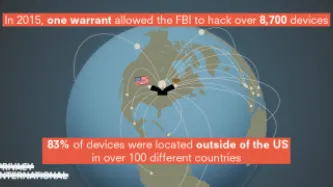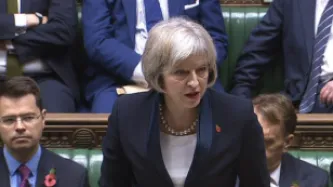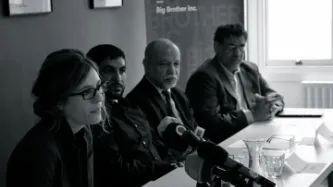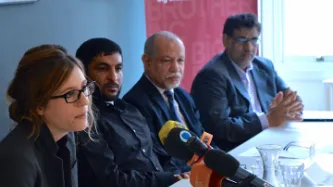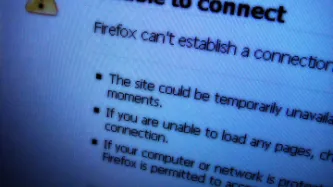Search
Content type: Advocacy
BackgroundThe Snowden revelations and subsequent litigation have repeatedly identified unlawful state surveillance by UK agencies. In response, the UK Parliament passed the highly controversial Investigatory Powers Act 2016 (IPA), which authorised massive, suspicionless surveillance on a scale never seen before, with insufficient safeguards or independent oversight.Privacy International led legal challenges to this mass surveillance regime both before and after the Act became law. The Act…
Content type: News & Analysis
One of the UK’s largest telecommunications operators, BT, has said to Privacy International that a report claiming it “co-produces malware” with a surveillance company for the GCHQ is inaccurate – but hasn’t said why or given any more details.
The accusation was made by C5IS – a shadowy online publication claiming to be “the most widely read source of information on surveillance technologies”. In its Big Black Book of Electronic Surveillance, it claims that SS8, a…
Content type: News & Analysis
Privacy International has joined a global coalition of privacy campaigners, tech companies, and technology experts to respond to proposals by British intelligence chiefs aimed at allowing them access to encrypted messaging apps such as WhatsApp or Signal.
If implemented, the proposals would allow government authorities to force messaging platforms to silently add a law enforcement participant to a group chat or call.
Such a capability poses serious threats to…
Content type: News & Analysis
Privacy International welcomes WhatsApp's immediate reaction after the revelation that Israeli cyber intelligence company NSO group had exploited a vulnerability in their software. We encourage all WhatsApp users to update their app as soon as possible. However, we believe WhatsApp needs to be much more transparent with their users. We haven't seen a notification on the app itself that would inform users about both, the bug, and the fix. The current version merely states that you can now see…
Content type: Long Read
As our four year battle against the UK government’s extraordinarily broad and intrusive hacking powers goes to the Supreme Court, we are launching a new fundraising appeal in partnership with CrowdJustice.
We are seeking to raise £5k towards our costs and need your help. If we lose, the court may order us to pay for the government’s very expensive army of lawyers. Any donation you make, large or small, will help us both pursue this important case and protect the future ability of…
Content type: Press release
On 5 October 2017, Privacy International will appear before the UK Court of Appeal to continue its challenge to the British government's large scale hacking powers. The case questions the decision by the Investigatory Powers Tribunal (IPT) to sanction the UK government's power to hack broad categories of people or property without any individualised suspicion.
TIMELINE AND KEY POINTS
- Privacy International began fighting bulk government hacking in 2014 at the…
Content type: Press release
Please find attached a copy of the briefing along with promotional photographs with the briefing.
Privacy International has today sent top EU and UK Brexit negotiators* a briefing on their vulnerability to potential surveillance by each other, and others. Brexit negotiations are to begin today.
The global privacy rights NGO has highlighted to the negotiators the risk of sophisticated surveillance capabilities being deployed against each other and by others, and provided…
Content type: Long Read
Introduction
A growing number of governments around the world are embracing hacking to facilitate their surveillance activities. Yet hacking presents unique and grave threats to our privacy and security. It is far more intrusive than any other surveillance technique, capable of accessing information sufficient to build a detailed profile of a person, as well as altering or deleting that information. At the same time, hacking not only undermines the security of targeted systems, but also has…
Content type: Long Read
This piece originally appeared here.
On both sides of the Atlantic, we are witnessing the dramatic expansion of government hacking powers. In the United States, a proposed amendment to Rule 41 of the Federal Rules of Criminal Procedure would permit the government to obtain a warrant, in certain circumstances, to hack unspecified numbers of electronic devices anywhere in the world. Meanwhile, across the pond, the British Parliament is currently debating the Investigatory…
Content type: Press release
Privacy International, the leading global privacy rights NGO, has today filed a Judicial Review at the UK High Court, challenging the Investigatory Powers Tribunal's (IPT) decision that the Government can issue general hacking warrants. This decision means that British intelligence agency GCHQ can continue to hack into the computers and phones of broad classes of people - including those residing in the UK. The Investigatory Powers Bill, currently being debated in Parliament, seeks to…
Content type: Long Read
The Investigatory Powers Tribunal (“IPT”) today held that GCHQ hacking of computers, mobile devices and networks is lawful, wherever it occurs around the world. We are disappointed that the IPT has not upheld our complaint and we will be challenging its findings.
Our complaint is the first UK legal challenge to state-sponsored hacking, an exceptionally intrusive form of surveillance. We contended that GCHQ hacking operations were incompatible with democratic principles and human rights…
Content type: Press release
Documents released today confirm GCHQ, the UK intelligence agency, is hacking computers in the United Kingdom without individual warrants. The documents contain previously unknown details and defenses of GCHQ's use of "thematic warrants" to hack. The legal challenge in which these documents are being disclosed was brought by Privacy International and seven internet and communications service providers from around the world in response to disclosures made by Edward Snowden.…
Content type: News & Analysis
Despite Wednesday's publication of the Investigatory Powers Bill being trailed as world leading legislation that would balance security and privacy, what the Government is actually seeking is a mandate for mass surveillance. This is a new Snoopers' Charter and we must oppose many of its most virulent elements.
The true debate on surveillance can now begin. After years of downplaying, obscuring, and denying the Snowden revelations, the Government has finally joined the conversation about the…
Content type: Advocacy
On 20 March 2015, Privacy International and Open Rights Group submitted comments on the UK Government's draft Equipment Interference Code of Practice.
The UK has been hacking for over a decade, yet the release of the draft Code of Practice is the first time the UK intelligence services have sought public authorisation for their activities. Indeed, it is the first time the intelligence services have publicly acknowledged they engage in hacking.
Unfortunately, the draft Code of…
Content type: Press release
The British Government has admitted its intelligence services have the broad power to hack into personal phones, computers, and communications networks, and claims they are legally justified to hack anyone, anywhere in the world, even if the target is not a threat to national security nor suspected of any crime.
These startling admissions come from a government court document published today by Privacy International. The document was filed by the government in response to two …
Content type: News & Analysis
The following piece by Privacy International Legal Officer Adriana Edmeades appeared in openDemocracy:
In 2012, Citizen Lab, a think-tank operating out of the Munk School of Global Affairs at the University of Toronto, came across evidence suggesting that Gamma International, a multinational technology corporation with offices across the world, sold a form of malware called FinFisher to Bahrain. Bahraini activists, amongst others, were seriously concerned: FinFisher gives its operator complete…
Content type: News & Analysis
Jaafar Al Hasabi, Mohammed Moosa Abd-Ali Ali, and Saeed Al-Shehabi each fled Bahrain for the United Kingdom with one goal: to be safe.
These men, activists in the pro-democracy movement in Bahrain, were variously subject to torture, arbitrary detention, harassment, and psychological trauma in their home country. They thought coming to the UK, and living in exile, would at least mean they would be outside the reach of the Bahraini government.
Despite the nearly 4,000 miles between their homes…
Content type: News & Analysis
We have learnt a lot in the last year about the dirty games GCHQ and NSA are playing to infiltrate the networks, tools and technologies we all use to communicate. This includes forcing companies to handover their customers’ data under secret orders, and secretly tapping fibre optic cablesbetween the same companies’ data centers.
Not content with that, we know now GCHQ are targeting companies systems administrators, exploiting the routers and switches in their networks to…
Content type: Long Read
Today, Privacy International lodged a legal challenge to GCHQ's extensive and intrusive hacking of personal computers and devices. Below, we answer a few questions about the law underlying our complaint, and why it matters.
Is hacking legal?
As a result of the Snowden revelations, we have learned that GCHQ, often in partnership with the NSA, has been using malicious software to intrude upon our computers and mobile devices.
This type of activity, often called "hacking," is a…
Content type: Press release
Privacy International today has filed formal complaints with the Organisation for Economic Cooperation and Development (OECD) in the UK against some of the world’s leading telecommunication companies, for providing assistance to British spy agency GCHQ in the mass interception of internet and telephone traffic passing through undersea fibre optic cables.
According to recent reports, BT, Verizon Enterprise, Vodafone Cable, Viatel, Level 3, and Interoute granted access to their fibre optic…
Content type: Press release
Civil society organisations today called upon the members of the Human Rights Council to assess whether national surveillance laws and activities are in line with their international human rights obligations.
The Snowden revelations have confirmed that governments worldwide continue to expand their spying capabilities, at home and abroad. Widespread surveillance is being conducted in violation of individuals’ rights to privacy and free expression, and is seldom regulated by strong legal…
Content type: Long Read
Spy agencies have long sought to turn the technologies that improve all our lives against us. From some of the very first forms of remote communications such as telegraph cables, to modern-day means like Skype: if the spies can exploit it, they will.
And, as we’ve learnt over the last few months, the computer and mobile devices that millions of us own and carry around with us every day are no exception to this rule.
The smart phones, laptops, and devices that have changed how we communicate…





